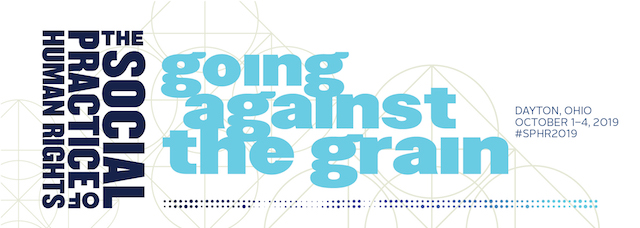Location
Reimagining and Decolonizing Human Rights
Start Date
10-2-2019 11:30 AM
End Date
10-2-2019 1:00 PM
Keywords
equality, economic and social rights, economic inequality, holistic human rights framework
Abstract
We are familiar with ‘equality before the law' and ‘one-person-one-vote’ as standards of the right to equality in international and domestic law. These standards address equality of civil and political rights. This paper considers whether the right to equality in international human rights law extends to economic and social rights as well. Article 1 of the Universal Declaration of Human Rights states “All human beings are born free and equal in dignity and human rights.” On its face, this article appears to require equality of all rights – including economic and social rights. Yet, many human rights scholars maintain that human rights do not address economic and social inequalities, at least directly. Rather, they maintain that reducing economic and social inequalities is merely instrumental to realizing human rights. Based on rules of interpretation of human rights treaties, this paper goes against the grain, arguing that the right to equality extends to economic and social rights. Economic and social equality is not simply instrumental to human rights. It is core to the holistic human rights framework that encompasses civil, political, economic, social and cultural rights. The paper then considers the level of economic and social equality that is required under international human rights law. Turning to existing policies that reduce economic and social inequalities, as well as social science literature on the impacts of economic and social inequalities on a range of human rights, the paper argues that the evidence shows that much greater economic and social equality will be necessary to fully realize human rights for all.
Author/Speaker Biographical Statement(s)
Gillian MacNaughton is an Assistant Professor in the School for Global Inclusion and Social Development and a Senior Fellow with the Center for Peace, Democracy and Development, both at the University of Massachusetts Boston. She works on economic and social rights, particularly the right to health, and their relationship to equality rights, as well as human rights-based approaches to social justice. Her recent research is published in the Health and Human Rights Journal, the International Journal of Human Rights, and the Georgetown Journal of International Law. She is also a co-editor with Diane F. Frey of Economic and Social Rights in a Neoliberal World (Cambridge University Press 2018). Her research has been funded by the Law and Society Association and the World Health Organization, and she has consulted for WHO, UNDP, UNICEF and the UN Special Rapporteur on the Right to Health. She received her doctorate in law from the University of Oxford.
Included in
Does the Right to Equality Extend to Economic and Social Rights?
Reimagining and Decolonizing Human Rights
We are familiar with ‘equality before the law' and ‘one-person-one-vote’ as standards of the right to equality in international and domestic law. These standards address equality of civil and political rights. This paper considers whether the right to equality in international human rights law extends to economic and social rights as well. Article 1 of the Universal Declaration of Human Rights states “All human beings are born free and equal in dignity and human rights.” On its face, this article appears to require equality of all rights – including economic and social rights. Yet, many human rights scholars maintain that human rights do not address economic and social inequalities, at least directly. Rather, they maintain that reducing economic and social inequalities is merely instrumental to realizing human rights. Based on rules of interpretation of human rights treaties, this paper goes against the grain, arguing that the right to equality extends to economic and social rights. Economic and social equality is not simply instrumental to human rights. It is core to the holistic human rights framework that encompasses civil, political, economic, social and cultural rights. The paper then considers the level of economic and social equality that is required under international human rights law. Turning to existing policies that reduce economic and social inequalities, as well as social science literature on the impacts of economic and social inequalities on a range of human rights, the paper argues that the evidence shows that much greater economic and social equality will be necessary to fully realize human rights for all.



